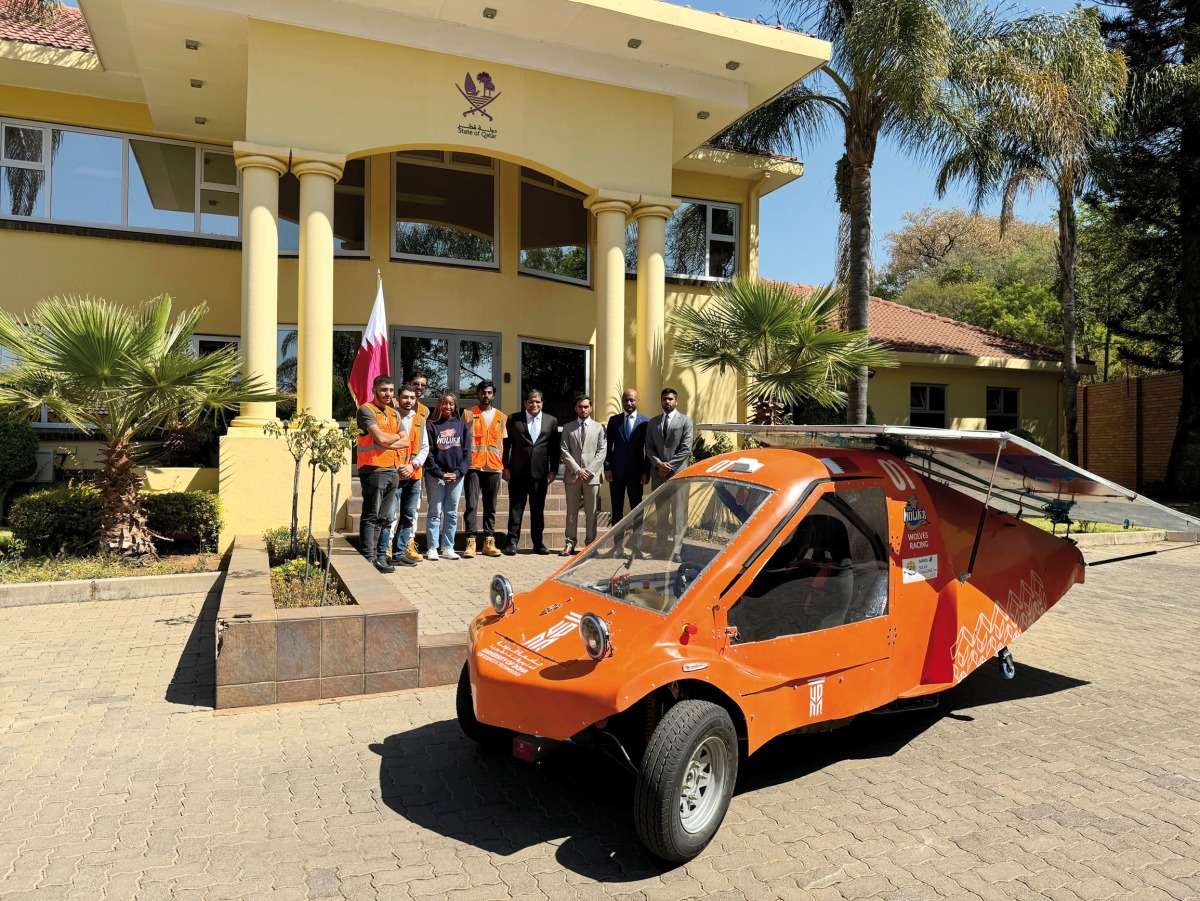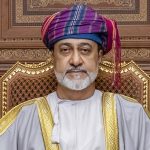UDST students from Doha, Qatar, have created a solar-powered car to compete in the Sasol Solar Challenge 2024 in South Africa. The team consisted of 13 students and 4 faculty members from the College of Engineering and Technology who spent 6 months designing and building the car. Their goal was to maximize solar photovoltaic efficiency, allowing the car to generate enough energy for 7 hours of daily driving. The team selected the lightest design option with the highest energy output, and students crafted the chassis, mechanical supports, suspensions, and external body using steel and lightweight fiber.
All electrical, braking, and safety systems for the car were designed and assembled on campus at UDST, following international standards. Rigorous testing was conducted to ensure the car met international standards and was roadworthy. The Sasol Solar Challenge involves driving 2,800 km on South Africa’s national roads, highlighting UDST’s commitment to innovation and sustainability. President of UDST Dr. Salem Al-Naemi commended the students for their dedication and innovation, emphasizing the importance of hands-on applied education in tackling real-world challenges aligned with Qatar’s sustainability goals.
Vice President at Sasol Qatar Lourens Jacobs expressed pride in welcoming UDST as the first Qatari team to participate in the Sasol Solar Challenge. This achievement not only marks a milestone for Qatar but also supports the country’s National Vision 2030 by fostering future leaders in a knowledge-based and sustainable economy. The UDST team, comprising mechanical engineering, electrical power, and renewable energy students, were actively involved in all phases of the car’s development, with faculty members providing guidance and ensuring safety.
The UDST students’ participation in the Sasol Solar Challenge showcases the practical skills and innovation fostered within the university. By supporting students in global competitions, UDST and Sasol contribute to the development of future leaders committed to sustainability and innovation. The team’s involvement in such a prestigious event highlights the capabilities of UDST students and their ability to compete on an international stage. This experience also aligns with Qatar’s emphasis on human development, sustainability, and innovation as outlined in the Third National Development Strategy.
The solar-powered car developed by UDST students exemplifies the university’s dedication to hands-on learning and real-world application of knowledge. By designing and building a fully solar-powered car for an international competition, students demonstrated their skills and expertise in engineering and renewable energy. UDST’s commitment to sustainability and innovation is evident through the rigorous testing and adherence to international standards for the car’s safety and roadworthiness. The involvement of faculty members in guiding and supporting students further emphasizes the value of practical education in preparing future leaders for Qatar’s transition to a knowledge-based economy.
In conclusion, the participation of UDST students in the Sasol Solar Challenge highlights the university’s emphasis on innovation, sustainability, and practical skills development. By designing and building a solar-powered car for an international competition, students showcased their abilities in engineering, renewable energy, and teamwork. The support from faculty members and industry partners like Sasol underscores the importance of hands-on education in preparing students for real-world challenges. UDST’s involvement in such prestigious events not only boosts the university’s reputation but also contributes to Qatar’s vision for a knowledge-based and sustainable economy.








